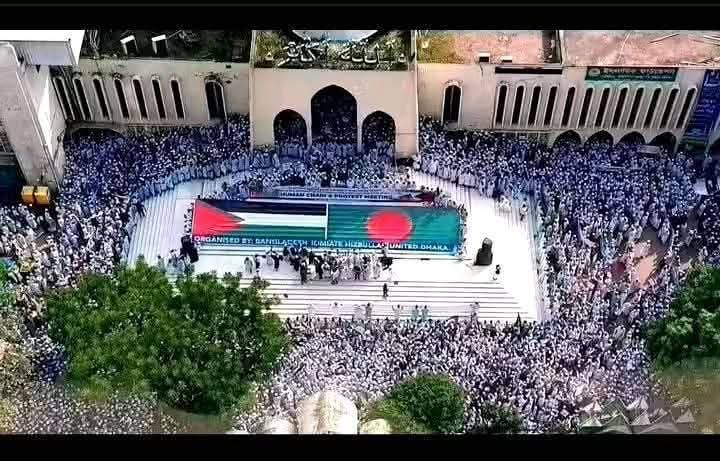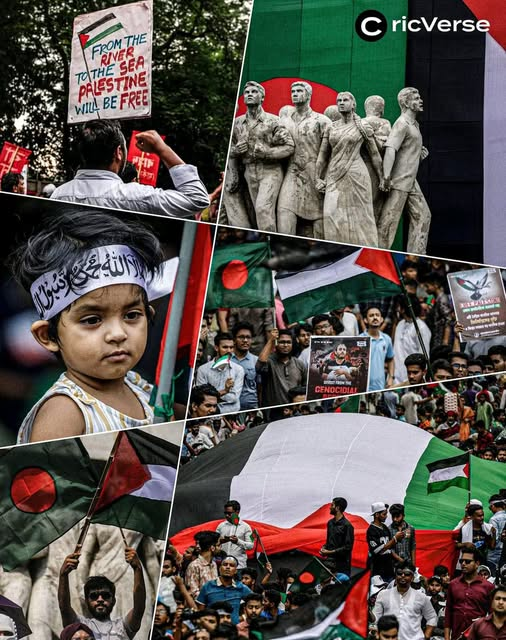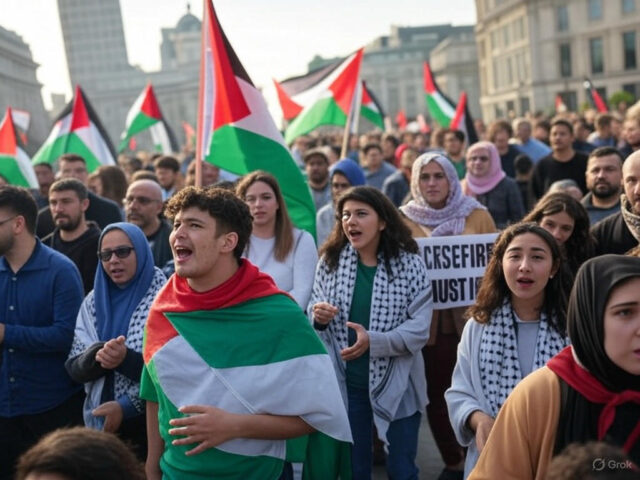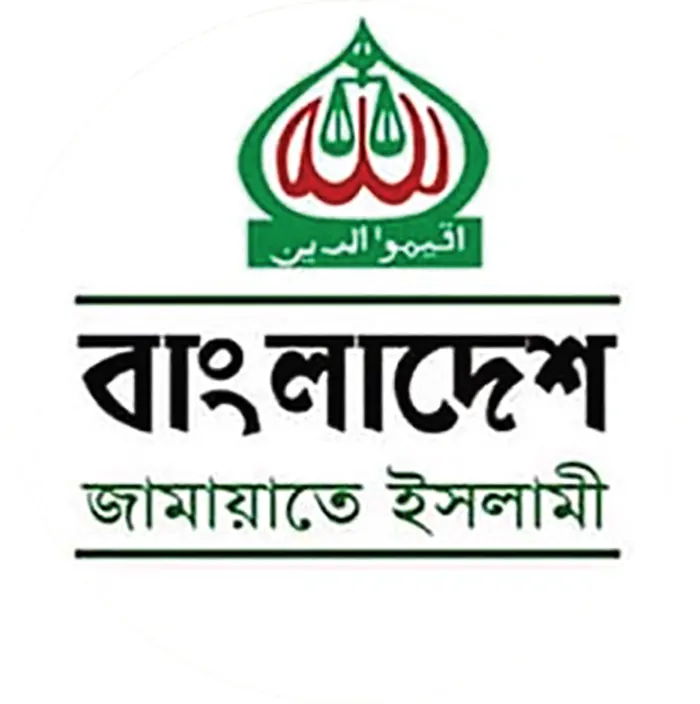April 7, 2025 — Tens of thousands of people across major cities around the world took to the streets on Sunday in a powerful display of solidarity with the Palestinian people, calling for an immediate ceasefire in Gaza and an end to what many are describing as decades of systemic oppression and occupation.
From London, New York, and Cape Town to Jakarta, Istanbul, and Buenos Aires, protestors gathered under banners reading “Free Palestine,” “Stop the Genocide,” and “Ceasefire Now.” The demonstrations were largely peaceful but emotionally charged, as crowds mourned the rising civilian death toll and called for international accountability.
In London, an estimated 100,000 protestors marched from Hyde Park to the Israeli Embassy, waving Palestinian flags and chanting slogans urging the UK government to halt arms exports to Israel. Organizers called for sanctions and diplomatic pressure in response to the escalating humanitarian crisis in Gaza.

Meanwhile in New York, demonstrators gathered in Times Square before marching to the United Nations headquarters, demanding immediate intervention and the implementation of UN resolutions calling for Palestinian self-determination.
Several demonstrations turned symbolic, with participants staging die-ins, reciting the names of Palestinian children killed in the conflict, and lighting candles in their memory.
“Palestinians are being massacred, and the world cannot look away any longer,” said Mariam Khan, one of the organizers of the protest in Toronto. “We are here to make it clear: silence is complicity.”
The protests were sparked by recent developments in Gaza, where Israeli airstrikes reportedly killed over 200 civilians in a single week, including dozens of women and children. Israel maintains that its actions are in self-defense, targeting Hamas infrastructure. However, human rights organizations, including Amnesty International and Human Rights Watch, have condemned what they describe as disproportionate use of force.
In Istanbul, crowds gathered in Taksim Square, holding placards in both Turkish and Arabic and calling on world leaders to “stand up for justice.” In South Africa, protestors in Cape Town invoked the country’s apartheid legacy to draw parallels with the Israeli occupation.
Protests in North African and Middle Eastern Countries
In Morocco, tens of thousands gathered in Rabat, Casablanca, and other cities, condemning Israel’s actions in Gaza and criticizing U.S. policies perceived as supportive of Israel. Protesters also called for the Moroccan government to sever diplomatic ties with Israel, established in 2020. AP NewsArab News+1PressTV+1
In Jordan, hundreds marched in Amman, expressing solidarity with Palestinians and urging the international community to act against Israel’s military operations. Demonstrators called on the Jordanian government to cut ties with Israel and annul existing peace agreements. Tasnim News+1PressTV+1
In Tunisia, large crowds assembled in Tunis and other cities, protesting the ongoing violence in Gaza and advocating for Palestinian rights. Activists emphasized the need for a unified Arab stance against Israeli aggression.
In Algeria, the Movement of Society for Peace organized a solidarity event in Algiers, marking the first anniversary of Operation al-Aqsa Flood. Participants, including political figures and civil society representatives, voiced unwavering support for the
Bangladesh
In Dhaka, thousands of activists, including members of the ruling party’s student wing, the Bangladesh Chhatra League (BCL), gathered at Dhaka University and other locations to demand an end to the Gaza-Israel conflict and the establishment of an independent Palestinian state. The Independent

The Communist Party of Bangladesh (CPB) held a rally at Purana Paltan crossing, where President Mohammad Shah Alam called on the international community to take immediate steps to stop Israeli attacks on Palestine.
In Dinajpur, leaders, activists, and devout Muslims associated with Islami Andolan Bangladesh gathered at Dinajpur Institute Field. The protest march toured the city’s main roads and concluded back at the Dinajpur Institute Field, with speakers urgently calling for an immediate halt to the mass killings of Muslims in Palestine.
Southeast Asia
In Indonesia, demonstrators assembled outside the U.S. Embassy in Jakarta, protesting against Israeli military operations and expressing solidarity with Palestinians. Protesters held mock bodies representing children killed in Israeli airstrikes on Gaza.
In Malaysia, the government, led by Prime Minister Anwar Ibrahim, strongly opposed the forced resettlement of Palestinians from Gaza, reflecting the country’s longstanding support for the Palestinian cause.
In Vietnam, the government maintained its historical support for Palestine, reflecting its own experiences with colonialism and resistance. Vietnam was among the early nations to recognize the State of Palestine following its declaration of independence in 1988.
These widespread protests and governmental positions across Bangladesh and Southeast Asia underscore the region’s strong support for Palestinian rights and the call for an immediate cessation of hostilities in Gaza.
Palestinian cause and condemned Israeli actions in Gaza.
Social media played a major role in mobilizing demonstrators, with hashtags like #FreePalestine, #CeasefireNow, and #GazaUnderAttack trending globally.
Protests remained peaceful and were met with minimal police intervention.
The demonstrations mark one of the largest coordinated global actions for Palestine in recent years, reflecting growing public outcry over the humanitarian situation in Gaza and broader issues surrounding Israeli policies in the occupied territories.
As the death toll rises and diplomatic solutions stall, protestors say they will continue to march — until justice is served and peace is achieved.









